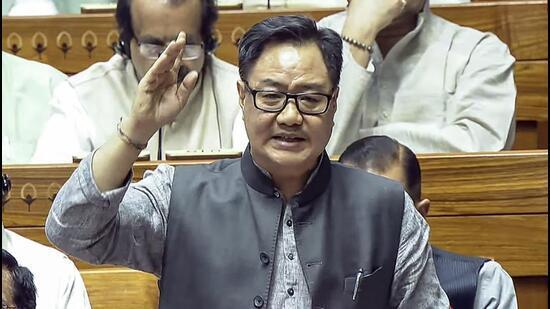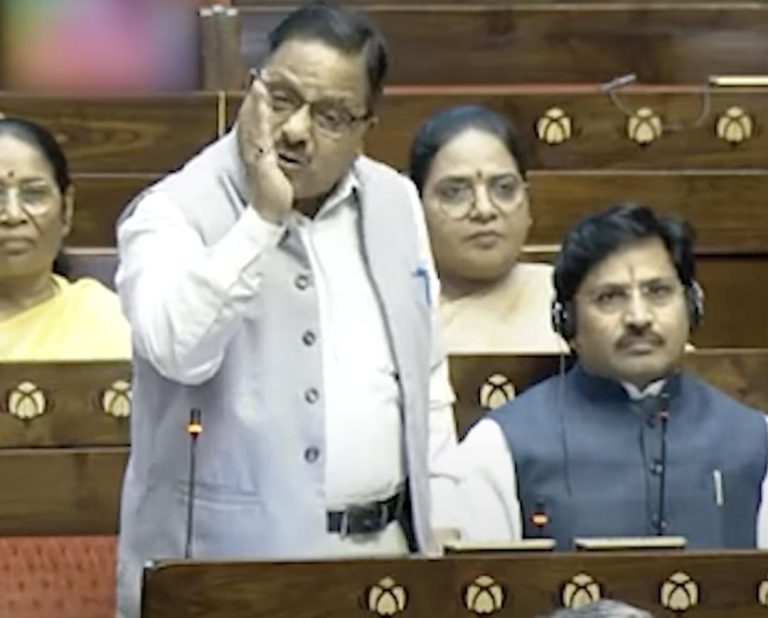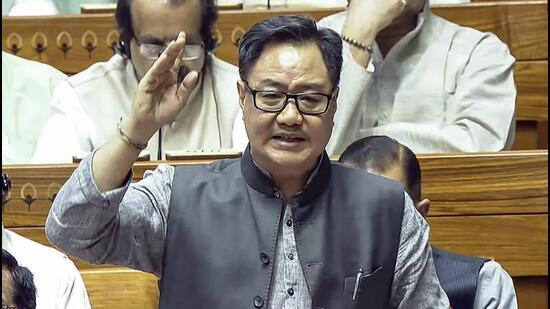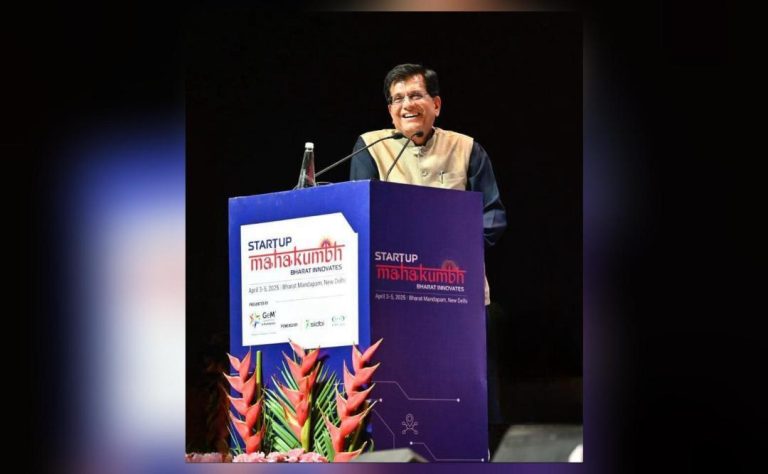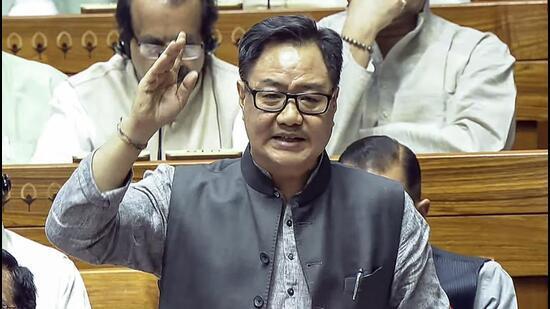
Opposition Creates Confusion & Leaves House: Rijiju in Rajya Sabha
The Rajya Sabha, India’s upper house of parliament, is known for its lively debates and discussions on various bills and issues. However, on Thursday, Union Minister Kiren Rijiju criticized senior Rajya Sabha members for creating confusion and raising issues in the House but not staying back to listen to the replies. This was during the discussion on the Waqf (Amendment) Bill.
Rijiju, who was participating in the debate, targeted senior member Kapil Sibal, accusing him of creating confusion by comparing the properties of Waqf bodies with those of other religious bodies. Rijiju’s remarks were made in response to Sibal’s statement, which was seen as an attempt to divert attention from the main issue at hand.
The Waqf (Amendment) Bill is aimed at amending the Waqf Act, 1995, to ensure the smooth functioning of Waqf boards and to provide for the appointment of chairmen and members of these boards. The bill also seeks to empower the central government to take over the management of Waqf properties if they are mismanaged or if the state governments fail to do so.
During the debate, Sibal had compared the properties of Waqf bodies with those of other religious bodies, arguing that the Waqf Amendment Bill was discriminatory and targeted only Muslims. Rijiju countered Sibal’s argument, saying that the bill was aimed at ensuring the proper management of Waqf properties and not to discriminate against any particular community.
Rijiju’s criticism of Sibal was not limited to his comparison of Waqf properties with those of other religious bodies. He also accused Sibal of creating confusion and not staying back to listen to the replies. Rijiju said that Sibal had raised several issues during the debate but had not stayed back to listen to the replies. This, Rijiju argued, was unfair and created confusion among other members of the House.
Rijiju’s remarks were seen as a veiled attack on Sibal and other senior members of the opposition who often create confusion and then leave the House without listening to the replies. This behavior, Rijiju argued, was not conducive to a healthy and productive debate.
The Waqf (Amendment) Bill is an important piece of legislation that aims to ensure the smooth functioning of Waqf boards and to provide for the appointment of chairmen and members of these boards. The bill also seeks to empower the central government to take over the management of Waqf properties if they are mismanaged or if the state governments fail to do so.
The bill was introduced in the Rajya Sabha in March 2020 and has been pending since then. The opposition parties have been opposing the bill, arguing that it is discriminatory and targets only Muslims. However, the government has maintained that the bill is aimed at ensuring the proper management of Waqf properties and not to discriminate against any particular community.
The Waqf Amendment Bill is a complex issue that requires careful consideration and debate. The opposition parties have been raising several issues with the bill, including the fact that it seeks to empower the central government to take over the management of Waqf properties. However, the government has argued that this provision is necessary to ensure the proper management of Waqf properties and to prevent their mismanagement.
In conclusion, Rijiju’s criticism of Sibal and other senior members of the opposition who create confusion and then leave the House without listening to the replies is a valid one. A healthy and productive debate requires all members of the House to engage with each other and to listen to each other’s views. Rijiju’s remarks highlight the importance of maintaining decorum and order in the House, even during heated debates and discussions.
Sources:
